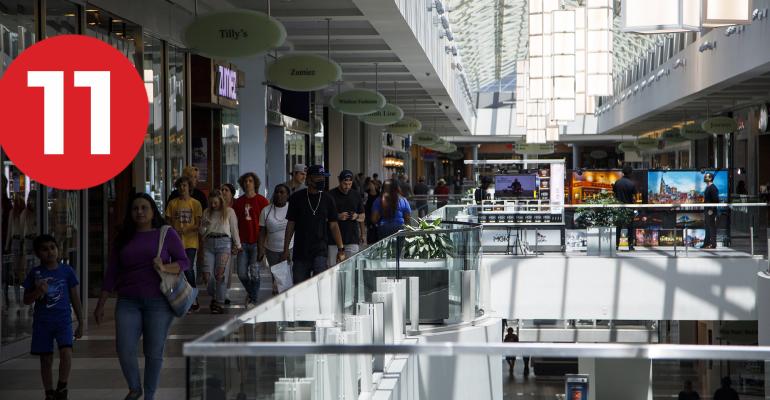- Fed’s Beige Book Shows a Sad CRE Industry “The Federal Reserve’s November 2022 Beige Book came out yesterday. Formally called the ‘Summary of Commentary on Current Economic Conditions by Federal Reserve District,’ the sets of anecdotal evidence gathered by the Fed’s dozen regional banks are not exacting data, but a survey of moods. Those of the commercial real estate industry show a set of mostly sinking observations, like a collection of gloomy reflections over one wine glass too many. This seemed a logical continuation of the softening pictures that began to pick up steam in June and then onward through the September and October editions.” (GlobeSt.com)
- More of Your Paycheck Is Going to Pay Rent. Which Cities are Keeping Pace? “With skyrocketing rents, landlords aren’t just taking more of your cash — they’re spending more of your time. The typical full-time employee in the United States worked nearly 63 hours in October to pay an average rent of $2,040 — almost six hours more than in October 2019, before the pandemic, according to data from the listing company Zillow. In other words, about 36 percent of the average renter’s gross income is spent on housing.” (The New York Times)
- Why the Carried Interest “Loophole” Is a Fallacy “Calls to raise the tax rate on fees derived from profits made on private equity investments are imbedded in the myopic view that private equity managers make too much money, and that tax revenue is needed to balance the federal government’s budget. These slapdash conclusions are reflective of a socialist mindset on income distribution and the assumption that government spending must always increase year-after-year instead of considering the better alternative—reducing expenditures.” (Americans for Tax Reform)
- Blackstone Stake Sale Values MGM Grand, Mandalay Bay at $5.5 Billion “Blackstone Inc. has agreed to sell its 49.9% stake in two Las Vegas hotels in a deal that values the properties at $5.5 billion, marking one of the largest U.S. casino transactions this year. The New York investment firm is selling its stake in the MGM Grand Las Vegas and the Mandalay Bay to Vici Properties Inc., which owns the other 50.1% stake in the properties, the companies said. Blackstone would receive $1.27 billion in cash, and Vici would assume Blackstone’s share of some $3 billion in debt, according to the companies.” (The Wall Street Journal)
- U.S. Has Closed $72B in Warehouse Sales So Far in 2022 “The nation’s industrial development pipeline is still growing, now at 713.6 million square feet under construction, and vacancies remain low, signaling that demand continues to outstrip supply and new deliveries, according to CommercialEdge’s most recent market report, which covered 2022 through October. But the sector has sustained body blows from an uncertain capital markets environment, according to the report.” (Commercial Observer)
- CBL Properties CEO Says Traditional Mall Model Is Changing More Today Than Ever “Stephen Lebovitz, CEO of CBL Properties (NYSE: CBL), participated in a video interview at Nareit’s REITworld: 2022 Annual Conference held in San Francisco on Nov. 15-17. Last year saw CBL complete a major balance sheet reorganization. Lebovitz said the change has been ‘very helpful’ for the company, resulting in significant free cash flow, ‘which is good to have in this environment,’ as well as a reduction in debt.” (reit.com)
- Some Retailers Are Learning to Love Bulked-Up Inventories “While many retailers are discounting, canceling orders and otherwise scrambling to get rid of a glut of goods filling their stores and warehouses, some are embracing their higher inventory levels. Merchants including Dick’s Sporting Goods Inc., Lowe’s Cos. and Walmart Inc. say the rising stocks signal a recovery from last year’s shortages driven by supply-chain disruptions and put them in a strong position to take advantage of consumer demand this holiday shopping period.” (The Wall Street Journal)
- New York City Housing Authority Tenants $443M in Arrears “Private landlords weren’t the only ones slammed by the pandemic and the state’s Emergency Rental Assistance Program. New York City Housing Authority tenants skipped rent too, racking up nearly half a billion dollars in arrears and limiting the authority’s ability to make critical repairs to its apartments. Unpaid rent at public housing has surged to $443 million, authority officials told The City. That’s more than four times greater than existed at the start of the pandemic.” (The Real Deal)
- NYC Building Owners Looking to Get Ahead of 2024 Environmental Regulations “With just over a year before New York City’s climate law targeting buildings goes into effect, property managers and co-op board members are starting to look to the future, motivated by the looming deadline — and the threat of thousands of dollars in penalties. Local Law 97, passed by the City Council in 2019, puts carbon caps on all buildings bigger than 25,000 square feet — the city’s largest source of greenhouse gas emissions — including some grocery stores, distribution centers, offices and several kinds of apartment buildings.” (The City)
- Why America’s Railroads Refuse to Give Their Workers Paid Leave “Why do these rail barons hate paid leave so much? Why would a company have no problem handing out 24 percent raises, $1,000 bonuses, and caps on health-care premiums but draw the line on providing a benefit as standard and ubiquitous throughout modern industry as paid sick days? The answer, in short, is ‘P.S.R.’ — or precision-scheduled railroading. P.S.R. is an operational strategy that aims to minimize the ratio between railroads’ operating costs and their revenues through various cost-cutting and (ostensibly) efficiency-increasing measures.” (Intellingencer)
- Los Angeles Gets its Third Amazon Go Suburban Format Store “Amazon Go is reinforcing its presence in the suburbs of the Greater Los Angeles metro area. Amazon has been broadening the portfolio of its Amazon Go checkout-free convenience concept with a new format for suburban locations. The latest location for the new format, which is still called Amazon Go, is the Los Angeles suburb of Woodland Hills, Calif.” (Chain Store Age)
0 comments
Hide comments





